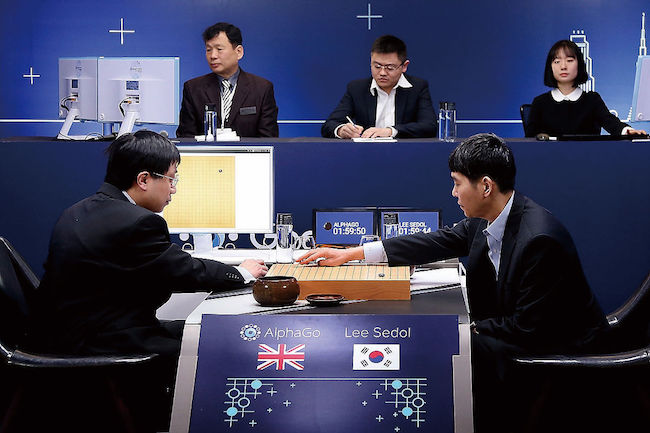 AlphaGo (pictured), which beat the human world champion. However, even this AI was surpassed by AlphaGo Zero Photo:Google via Getty Images
AlphaGo (pictured), which beat the human world champion. However, even this AI was surpassed by AlphaGo Zero Photo:Google via Getty Images
At the forefront of artificial intelligence (AI) research, big changes are taking place. This is perhaps best symbolized by "AlphaGo Zero", an AI software developed by British company DeepMind which is capable of playing the game of Go. When the research related to this project was published in October of last year, I imagine there were few people more shocked than I was.
Like its predecessor, AlphaGo, AlphaGo Zero was developed not by using past data from matches between humans, but rather through a process in which the system was taught the basic rules of the game of Go and AIs then competed against one another repeatedly in an "unsupervised" learning process to become more and more proficient.
Despite the fact that the system was not supplied with past match data, when it faced off against AlphaGo, which had toppled the human Go champion, the results were shocking: AlphaGo Zero emerged victorious with a 100-0 win-loss record.
"People tend to assume that machine learning is all about big data and massive, massive computation, but...in AlphaGo Zero, we use more than an order of magnitude less computation than we used in previous versions of AlphaGo," says researcher and developer David Silver, a professor at UCL (University College London), in one video. The system has been able "...to really discover, tabula rasa, how to play the game of Go," he adds.







